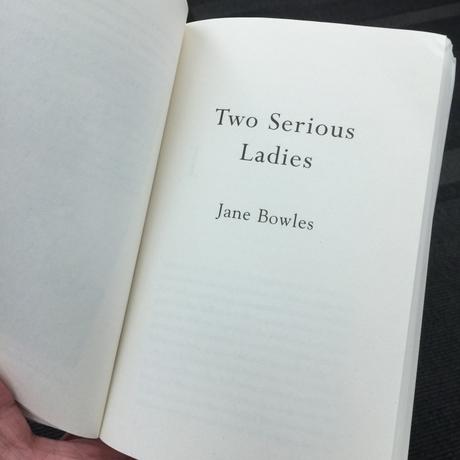
Right from the beginning, Mrs. Copperfield describes Miss Goering has "gloriously unpredictable", and for me, those would be accurate adjectives applicable to the entire novel. It wouldn't be surprising to say that this is the strangest novel I've read all year, for it's only the fourth one I've finished in 2016. Perhaps I ought to say it's one of the strangest novels I've read ever, and yet that does not mean I wasn't completely absorbed by it. No, as I turned the last page tonight I could see why Scott mentioned to me that he has read it several (I believe five?) times. The surprises are so abrupt, the themes so large, that I could see myself reading it several times myself, but not before initial thoughts are "due" by the end of the month.
In the beginning, Mrs. Copperfield and Miss Goering connect at a party, go their separate ways during the course of the novel, and reconnect at the end of the book. While they have been absent from each other, they have endured embraced some remarkable experiences. Mrs. Copperfield and her husband travel to South America, and disembark in Panama where Mrs. Copperfield meets sharp-featured, wiry-haired Pacifica, a prostitute with whom she falls in love. She bids her husband to continue his trip without her.
Miss Goering sells her lovely home for a shack on an island, and moving in with her are her governess's cousin (Lucie Gamelon), Arnold, and Arnold's father. An odd assortment of people move in and out of the pages of this novel, and while it seems that they long for connection with Christina Goering, she longs for nothing of the sort.
To me, her life is more a trial-and-error stab at abating loneliness, which none of the characters are very capable of achieving, least of all Miss Goering.
The characters seem to be in horror of being alone. Mrs. Quill, proprietress of the Hotel de las Palmas where Pacifica works, says to a waiter, "Such an awful, dreadful, mean thing to be alone in the world even for a minute..." (p. 134)
When Miss Goering is sitting at a bar, she answers the question put to her about if she's having a good time like this: "Well," said Miss Goering, "it wasn't exactly in order to have a good time that I came out. I have more or less forced myself to, simply because I despise going out in the night-time alone and prefer not to leave my own house. However, it has come to such a point that I am forcing myself to make these little excursions-" (p. 194)
In several places, Miss Goering points out that she is forcing herself to accomplish something, yet what that might be befuddled me until the conclusion of the novel. It seems she had been on a quest for salvation: "...she was only interested in the course that she was following in order to attain her own salvation." (p. 239).
How one obtains salvation without faith is beyond me, but Christina Goering seemed to think it can be accomplished by downsizing. Facing her fears. Keeping herself busy, and surrounded by someone interesting to talk to at all times. It is as though isolation is the worst state of being for both of these women, yet having a lovely time does not fill the gap in their aching hearts.
Jane Bowles writes in a way that made me think there had been a translator for Two Serious Ladies, until I remembered that she was an American writer born in 1917. Yet there is a passive, almost surreal quality to her writing that led me to feel that her characters were quite ungrounded. They seemed lost and instead of finding the novel to have an overall effect of humour, for which Jane Bowles has been noted, I found it tragic. They are two serious ladies, indeed. Two serious, sad and hopeless ladies in my opinion.
I read this book with Scott, Frances, Dorian, Claire and Laurie, each of whose thoughts I am eager to know. And, in an attempt to schedule this for Wednesday, I accidentally published it tonight. So sorry if this was rushing the timing for anyone...

